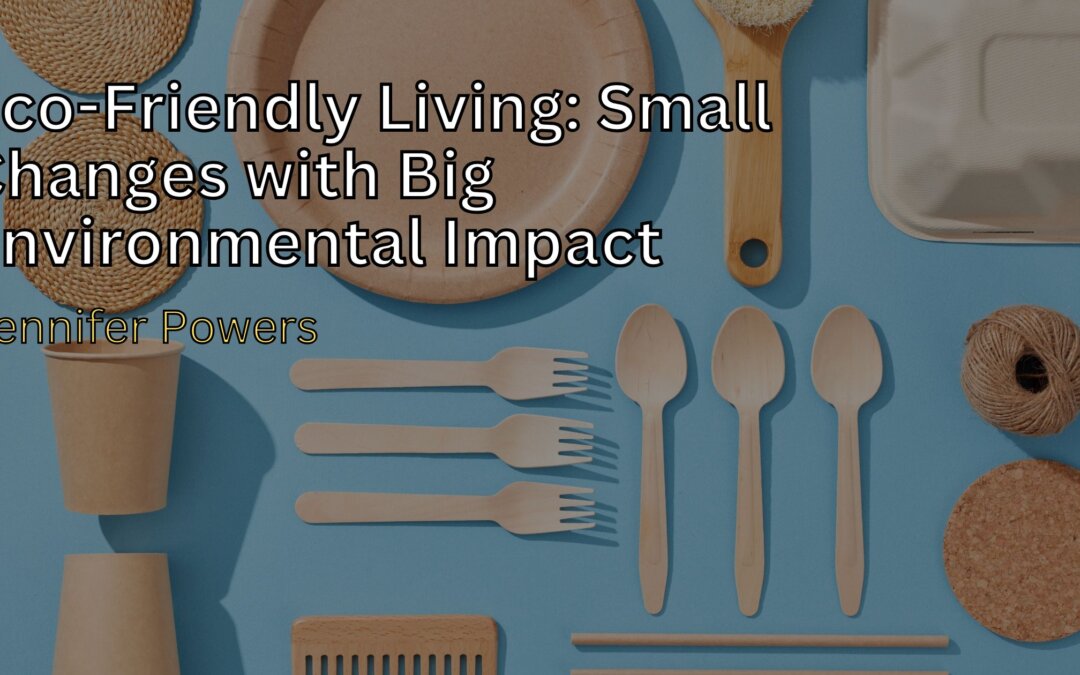In a world increasingly affected by climate change, pollution, and dwindling natural resources, the call to live more sustainably has never been louder. While the environmental challenges we face can seem overwhelming, the good news is that meaningful change often starts with small, intentional choices made in our everyday lives. Eco-friendly living isn’t about perfection—it’s about progress. Even modest changes, when adopted collectively, can create a powerful ripple effect.
Why Small Changes Matter
Many people hesitate to adopt a more eco-conscious lifestyle because they believe it requires a total overhaul of their habits. But sustainability doesn’t have to be extreme or expensive. Small changes, consistently applied, can reduce waste, lower carbon footprints, and inspire others to follow suit. When one household cuts back on plastic or conserves energy, it may seem like a drop in the ocean—but when thousands do the same, the impact becomes monumental.
Easy Eco-Friendly Changes You Can Make Today
- Ditch Single-Use Plastics
One of the simplest and most impactful changes is reducing single-use plastic. Swap out plastic water bottles, grocery bags, and utensils for reusable alternatives. A stainless steel water bottle or a cloth grocery bag might seem like a small switch, but it prevents hundreds of disposable items from ending up in landfills or oceans each year. - Unplug and Power Down
Even when devices are off, they often consume energy if left plugged in. Get in the habit of unplugging electronics when not in use, and switch to energy-efficient LED bulbs. Not only does this reduce energy consumption, but it also lowers your electric bill. - Opt for Local and Seasonal Foods
Transporting food over long distances requires a lot of fuel. By buying local, seasonal produce, you support nearby farmers and cut down on the carbon footprint associated with food transportation. Bonus: it’s usually fresher and more nutritious! - Reduce, Reuse, Recycle—Mindfully
Recycling is important, but reducing and reusing are even more impactful. Before purchasing something new, consider whether you can repurpose or repair what you already have. Thrift shopping, borrowing, or upcycling are great ways to reduce waste and consumption. - Go Paperless
From digital receipts to online billing, there are many opportunities to reduce paper use. Switching to paperless options saves trees, water, and energy—and it cuts clutter at home.
The Bigger Picture
Living sustainably is about creating habits that align with caring for our planet. Whether it’s conserving water, composting food scraps, or riding a bike instead of driving, each action contributes to a cleaner, healthier Earth.
Importantly, eco-friendly living also nurtures a deeper sense of connection—to the environment, to our communities, and to the future we’re helping to shape. When we model sustainable habits, we encourage others—friends, family, even children—to follow our lead.
Final Thoughts
Eco-friendly living isn’t about being perfect. It’s about making mindful choices that honor our planet and future generations. The beauty of small changes is that they’re manageable and sustainable—and when enough of us make them, they become a powerful force for good.
So start where you are. Swap one thing. Shift one habit. Because even the smallest actions, when rooted in care and consistency, can change the world.
